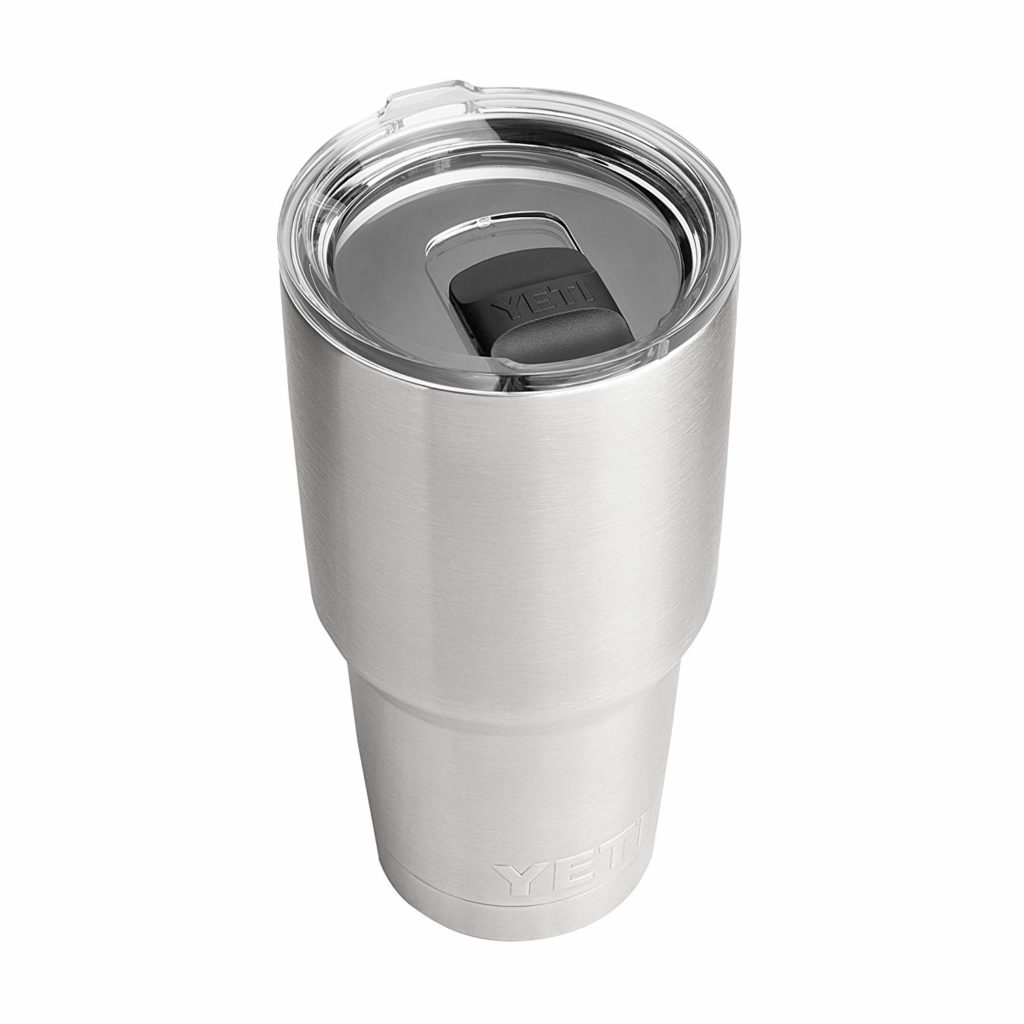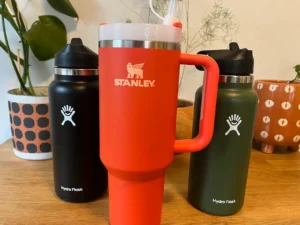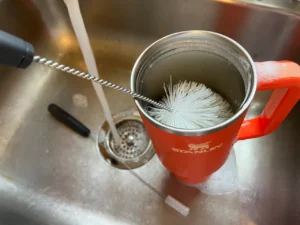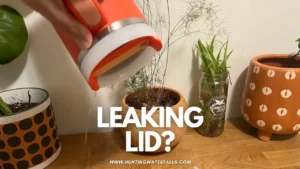Yeti cups are designed to hold iced cold water and drinks for 24+ hours at a time. So what's the deal with the freezer?
Why can't you freeze a Yeti cup? Why do Yeti (and other brands) advise against putting your insulated tumbler cups in the freezer and what exactly will happen if you do put your Yeti cup in the freezer?
I have often put my Yeti cup in the fridge in order to keep my drink cold, but thought it might be good to put in the freezer and pre-chill it before I fill it up with beer. So I wanted to see if I could just freeze my Yeti cup the night before.
Yeti says in their care instructions “DO NOT place in the freezer” and I wanted to find out why. So I did some research and here's what I discovered:
The reason you can't freeze your Yeti cup is that as liquid cools it expands in all directions. The expansion can cause the stainless steel walls of the Yeti cup to deform and can sometimes also break the vacuum seal. If this happens your Yeti cup will no longer insulate properly.
There is every chance that you could freeze your Yeti cup and it be absolutely fine, but there is definitely a risk of damage and if your Yeti cup is damaged in the freezer it's not covered under warranty as the care instructions clearly say not to.
See the latest prices of Yeti tumblers at Yeti.com
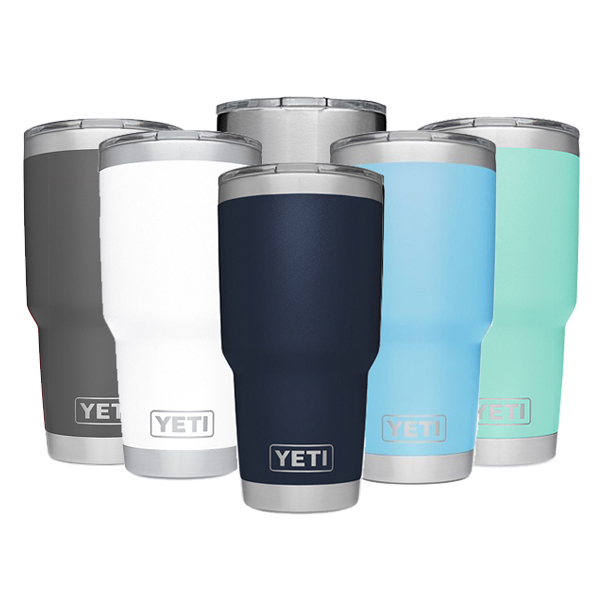
Why Does Yeti Say Not To Freeze Your Yeti Cup?
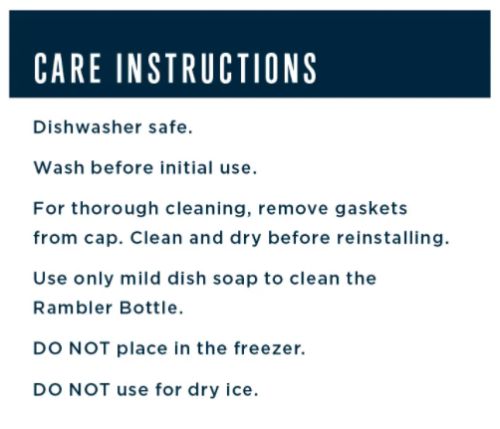
You would think that if Yeti is going to give instructions not to freeze your cups or bottles they would tell you why.
However, Yeti actually gives no official reasoning as to why you can't put the cup in the freezer.
They simply say in their care instructions on their printed material as well as their Rambler FAQ page “DO NOT place in the freezer”
They don't say what will happen if you place it in the freezer or under what circumstances it is and isn't ok.
I searched high and low to find Yeti commenting on anything to do with freezing your cup and there wasn't anything.
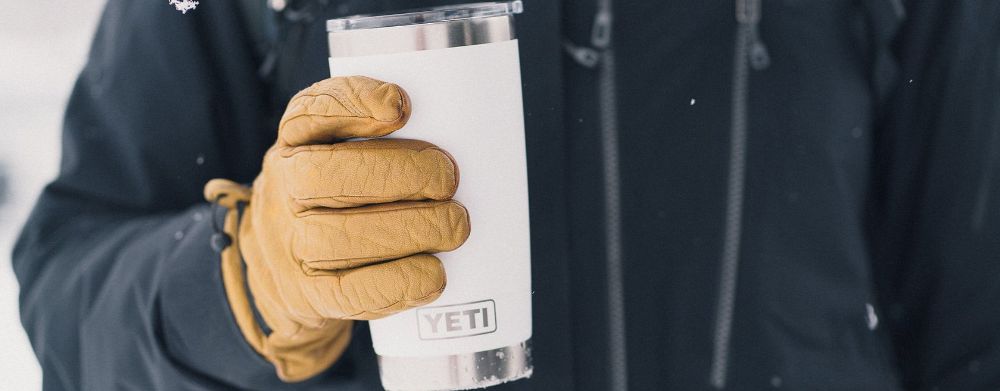
The closest thing to an official statement from Yeti is this Reddit post where a lady claims her husband works at Yeti and answers someones question about whether or not you can put a Yeti in the fridge.
She says:
My husband works for yeti. He says the only reason you can’t put it in the freezer is because of expansion (of whatever drink you have inside the tumbler) when it freezes. He says the fridge is fine 👍
This is a far cry from an official statement but it does make sense and it also lines up with what other competing brands like Contigo say about not putting their insulated products in the freezer.
On this article about the topic they state:
When liquids freeze, they expand and take up more space. As the liquid freezes and expands, it can cause your water bottle or travel mug to become deformed and misshapen.
Even worse, the expanding liquid might break the welds and seals holding your water bottle together. If you place a stainless steel water bottle in a freezer, you might unintentionally and up damaging the vacuum seal, causing it to lose its insulating properties and not keep your water cold for as long. Ironic, right?
What Do Others Say About Freezing Your Yeti Cup?
Because Yeti doesn't offer much information about freezing their cups I wanted to do some more research and see if anyone out there has frozen their cup and what their experience was.
I actually found this amazon post where a lady named Christine said that she put hers in the freezer and the metal bottom part cracked in a few places.
I am guessing she is talking about the protective metal plate that goes over the bottom of Yeti cups to protect you from the vacuum seal.
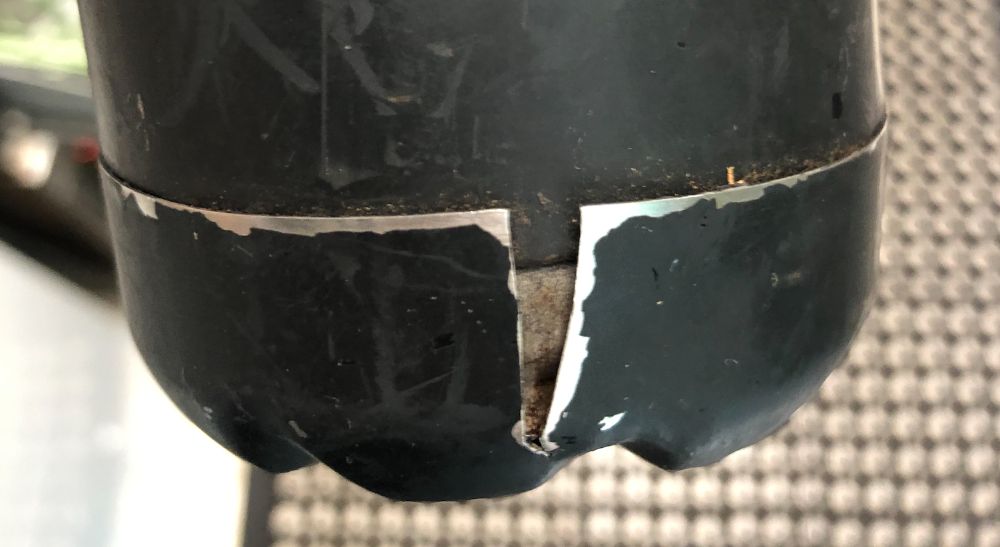
The cup would still likely work and insulate fine but this is proof that freezing your cup does actually have the potential to cause damage to it.
The general consensus among people on the internet is that you shouldn't freeze things in your Yeti and if you want to prechill the inside of it then use iced water or use the fridge.
There is this reddit user who used the direction freezing that the Yeti cup creates in order to make some ice without bubble in it. The result is pretty fascinating and he didn't mention anything about the cup breaking.
Basically everyone online says not to freeze your Yeti cup. It could break it and it's just not worth it for the pre-chilling effect your might get.
Why Would You Want To Freeze a Yeti Cup?
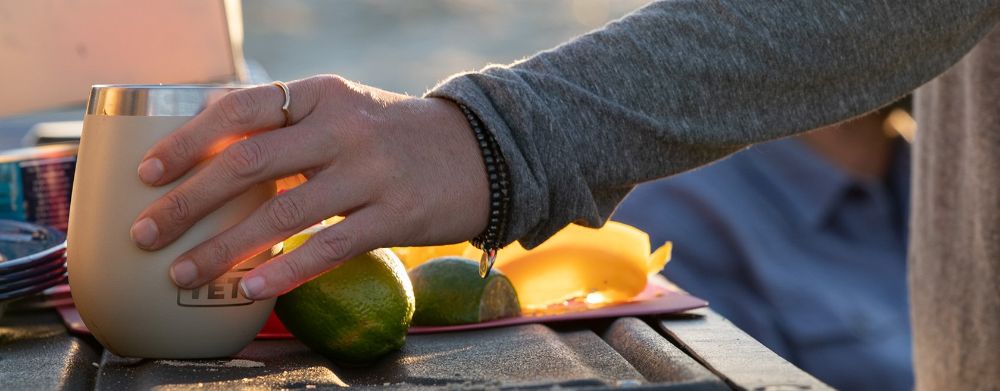
You may want to throw in a drink the night before so that it freezes overnight and you've got an ice cold drink in the morning that you can take with you all day.
But it seems the main reason people want to freeze their Yeti cups is to pre-chill the metal so when they pour their drink in there it stays cold for longer.
Failing to pre-chill your Yeti cooler is the number one reason ice melts quickly in your Yeti, but the same isn't true for Yeti rambler cups and bottles.
Because it is the vacuum between the inner and outer wall of the cup that does the insulating all you're pre-chilling in the thin stainless steel on the inside of the cup.
Pre-chilling this will only give you tiny improvements in how long your drink stays cold for and a better method to pre-chill is to simply fill the cup up with iced water, leave for a couple of minutes and this discard the water before pouring your drink into the cup.
Can You Freeze an Empty Yeti Cup?
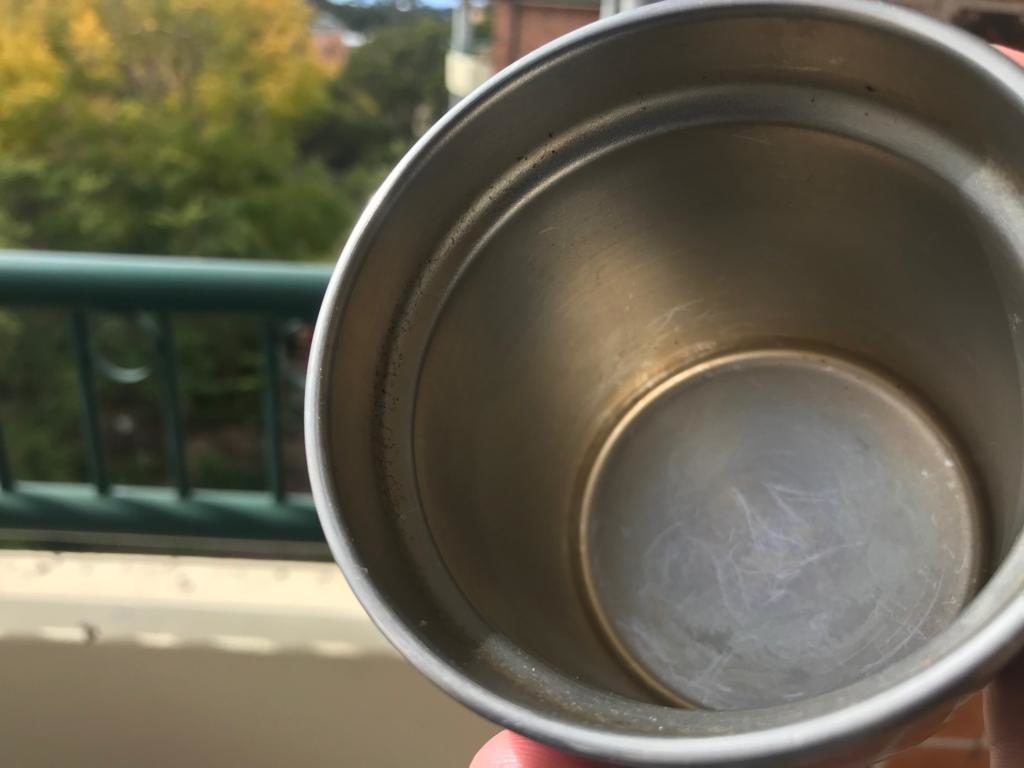
What about putting an empty Yeti cup in the freezer?
If you're just looking to pre-chill your cup and if the cup is completely empty and has nothing in it then can you safely freeze it? Or could you still potentially break it?
In theory the only negative I can see from freezing a Yeti rambler cup or bottle is that the liquid inside will expand as it freezes, putting pressure on the walls of the cup and bending/breaking it.
However, if the cup is completely empty then it should be 100% fine in the freezer.
Yeti cups are designed to hold iced water, which is often below 0ºC (32ºF) and they are also designed to be able to handle cold exterior temperatures (people use them mountain climbing, skiing etc). They can handle the heat of a hot cup of joe and even the heat of a dishwasher.
By all means they should be able to handle the cold temperatures of the freezer without any damage, assuming there is no liquid inside the cup.
I could also see someone placing something already frozen (eg. ice cubes or ice cream) in their Yeti cup and then placing it in the freezer.
Because the items are already frozen (and thus already expanded) it shouldn't put any pressure on, or cause any harm to your Yeti cup.
In fact, Yeti cups are a great way to keep ice cream frozen without a freezer.
Will Freezing Your Yeti Cup Void Your Warranty?
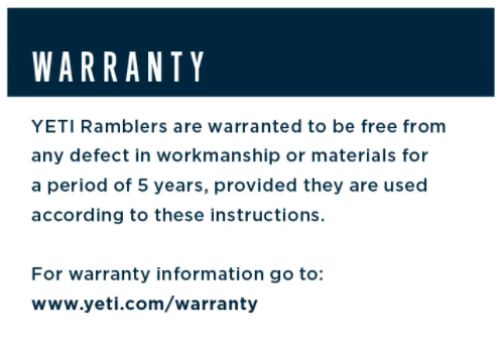
Yeti offers a 5 year warranty on all their rambler products. This includes their cups/tumblers as well as their bottles.
However, if you freeze a Yeti and Yeti find out that's why it broke then your warranty will be void.
On Yeti's warranty page they stat:
You must have used the product only as intended and in accordance with the product’s care instructions.
Because the care instructions clearly state DO NOT freeze you are not using it in accordance with the product's care instructions and thus your warranty claim won't be approved.
Now if Yeti don't find out why it broke you MAY be able to get a replacement, but that's a big what if. If they find out you froze something in your cup then you're likely going to have to buy another one.
See the latest prices of Yeti tumblers at Yeti.com
